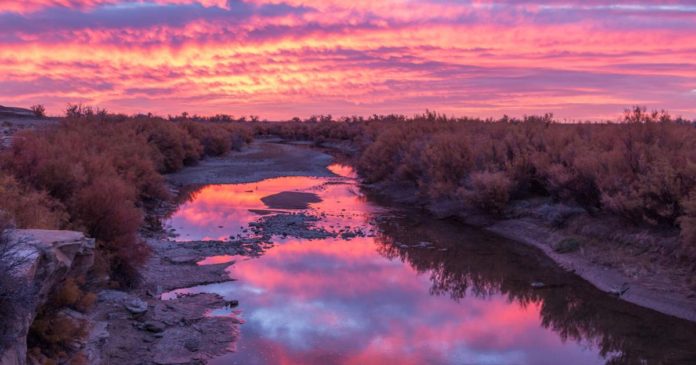A Colorado Court of Appeals decision regarding the state’s rules for public river access has found a new opponent—Attorney General Phil Weiser.
The appeal was filed by Plaintiff Roger Hill, who originally sued landowners Mark Everett Warsewa and Linda Joseph for throwing rocks at him while he waded on a portion of the Arkansas River that passed through their property in 2012.
His argument is that since the portion of the river in question was navigable at statehood, it is therefore owned by the state. Meanwhile, the defendants maintain that though the river may be considered public property, the river bed is privately owned by them. Thus, Hill was not allowed to step on the river bed as he walked through fly fishing.
The court of appeals ultimately ruled in Hill’s favor, reversing a previous dismissal and allowing for further proceedings in this case.
In a Monday news release, Attorney General Phil Weiser announced that he has made a personal request for the Colorado Supreme Court to review the case, stating that its implications “threaten to upend how water and access to Colorado rivers have been managed since Colorado joined the Union.”
“If this longstanding Colorado approach to water and river access is to change, the decision-making process rightly belongs to the legislative and executive branches of government,” Weiser said in the release.
The question of navigability has a long and contentious past in Colorado.
According to the Colorado Court of Appeals case, “navigability is a matter of federal law, and encompasses those rivers that were “used, or [were] susceptible of being used, in their ordinary condition, as highways for commerce, over which trade and travel are or may be conducted in the customary modes of trade and travel on water,””
In most states, if a river is deemed navigable then it and its bed are considered property of the state. However, Colorado has unclear standards for navigability.
“The Colorado Attorney General issued a formal legal opinion in 1983 stating that persons who float or boat on Colorado streams across private lands without the owner’s permission do not commit trespass, so long as they do not touch the stream banks or beds. However, because the Attorney General’s opinion is not binding on law enforcement officials, those officials may or may not apply the Attorney General’s opinion, which could result in inconsistent enforcement across the state,” a report from American Whitewater reads.
In the release, Weiser argues that the defendant’s case was made based on a “theory” and not a law, and therefore cannot be legally protected.
“According to the state’s filing, if the case is allowed to proceed, it would force courts to determine navigability for every river and stream in Colorado and have staggering implications for settled agreements governing the use of our state’s rivers. Since Colorado became a state, the state legislature and Governor have never advanced the position that the state actually owns any of the riverbeds in Colorado. This case is seeking to allow an individual to make this decision on behalf of the state,” the release said.
STAY INFORMED: Sign-up for the daily OutThere Colorado newsletter here
Credit: Source link






























